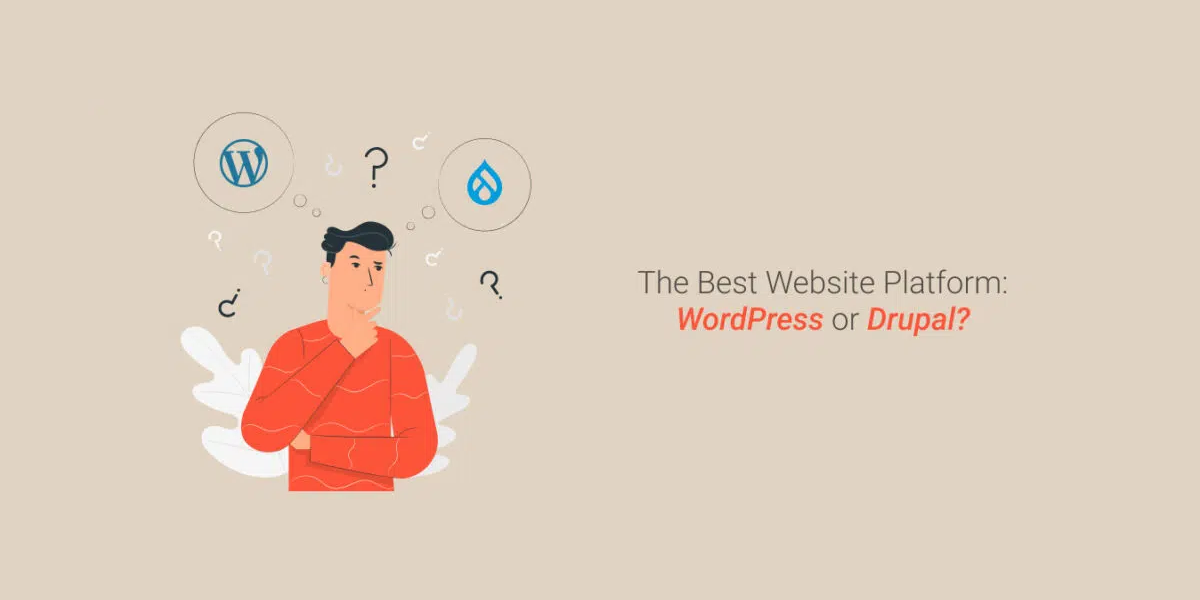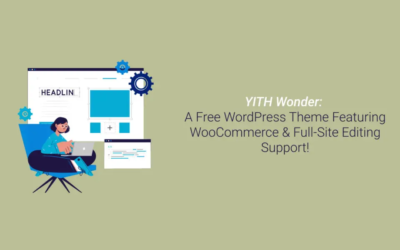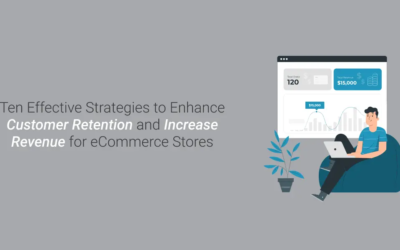Within moments of getting into the task of starting your own website, you’ll realize the vastness of the ocean of choices up ahead. The first order of business to consider is whether you want a traditional website, or a CMS (Content Management System). Nowadays, most web hosting providers offer a complete suite of services at your disposal, shifting the onus of shaping and tailoring your website to you.
Giants like WordPress and Drupal have been around for quite a while now, carving their own niches in the online sphere. In this article, we at Ravenan Digital are going to evaluate both contenders based on their pros and cons to decode which is objectively better. Read on till the end for our verdict!
WordPress & Drupal: The Foundations
Before we take a deeper dive into either platform, let’s take stock of what they are on a fundamental level.
– WordPress is a web hosting provider offering services centred around website management and operations. An important point to note here is that wordpress.org is more complex than wordpress.com, as the former is self-hosted, thereby requiring more setup and investment.
– Drupal is relatively newer in the arena than WordPress. However, it has made a name for itself as a highly flexible open-source website creation tool, albeit one with a steeper learning curve.
Our first impressions? At first glance, WordPress will be far more user-friendly to work with at the onset. However, note that Drupal’s UI cues you into its mechanics with relative ease, so it’s not far behind! With the initial impressions out of the way, let’s compare the finer aspects.
Content Posting & Management
This is the bread and butter of any CMS service. Being able to manage and publish content is crucial to maintaining steady traffic to your site. How do the two contenders fare in this department?
– WordPress has into an art over the years. Their Block editor enables user-friendly content creation and diversification. The integration of plugins and themes for other purposes (like e-commerce) is streamlined to near-perfection.
– Drupal follows a by-the-book approach to content publishing. You have a basic editor that tells you the types of content you can publish upfront. The inclusion of progression/revision logs is a welcome touch, entirely absent on WordPress. Drupal publishing might not have all the bells and whistles of WordPress, but it gets the job done!
Personalization/Flexibility
How much can you tweak your website under the two systems? Let’s find out.
– WordPress allows complete customization from the basic skeletal framework of your site. Even if you’re unfamiliar with web development, there’s no end to what you can achieve through a WordPress site, thanks to the extensive suite of plugins and themes.
– Drupal operates on an open-source model, which entails a higher degree of customizability in its operations. You can install themes and modules, albeit in a more manual sense. It’s easier to figure out if you have a plan of action going in!
User-friendliness
To round things off, how much does either platform score in terms of accessibility and layman-friendliness?
– We give WordPress an 8.5/10 for user-friendliness. In the years since its launch, WordPress has shaped its UI/UX to be far more accessible to new users and veterans alike.
– Drupal gets a 7.5/10 from us for how accessible it is. Despite the initial learning curve, the interface walks you through the basic functions once you get the hang of things.
Verdict
Overall, we would say WordPress edges out Drupal purely in terms of sheer popularity and widespread usage. That being said, Drupal is an ideal choice for those who prefer a more methodical approach to website design. Whatever your choice, Ravenan Digital is here to help! Get in touch with us today to set up a cutting-edge website for your brand.





0 Comments